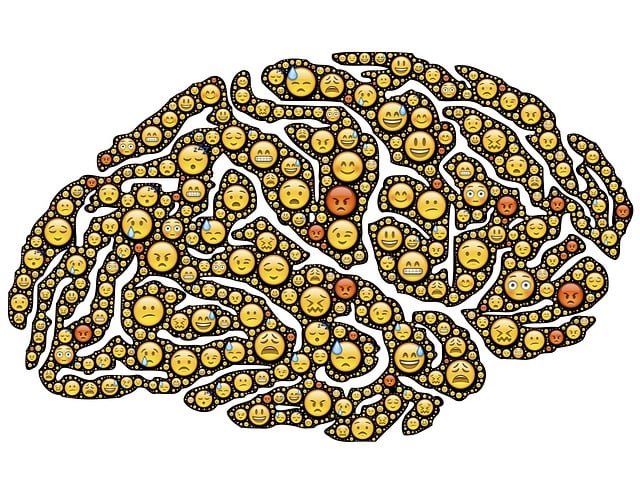Mental wellness, crucial for overall health, is enhanced in diverse communities through innovative ASL therapy in Greenwood Village. This approach bridges communication gaps, improving mental health outcomes. Self-care initiatives and public awareness campaigns focused on compassion cultivation further support happier, healthier communities. Personalized coaching programs integrating ASL cater to unique needs of residents, fostering inclusive spaces for stress management, empathy-building, and positive thinking. Measuring success through structured assessments ensures tailored support and positive mental wellness outcomes, aligning with broader mental health policy efforts.
In the pursuit of enhancing community health, mental wellness coaching programs have emerged as powerful tools. This article explores how these initiatives can significantly impact Greenwood Village residents’ well-being, with a unique focus on integrating American Sign Language (ASL) therapy. By understanding the profound connection between mental health and community vitality, we delve into strategies for tailoring coaching programs to meet specific needs. From promoting accessibility through sign language coaches to measuring success, this comprehensive guide illuminates effective practices for Greenwood Village’s mental wellness journey.
- Understanding Mental Wellness and Its Impact on Community Health
- The Role of Coaches in Promoting Sign Language Accessibility
- Developing a Customized Coaching Program for Greenwood Village
- Integrating American Sign Language (ASL) into Therapy Sessions
- Measuring Success: Evaluating the Effectiveness of the Coaching Programs
Understanding Mental Wellness and Its Impact on Community Health

Mental wellness is a cornerstone of overall health and well-being, encompassing emotional, psychological, and social aspects. It affects how individuals manage stress, relate to others, and make choices that impact their lives. Promoting mental wellness within communities is essential for fostering a healthy and resilient environment. According to research, strong community bonds and accessible support networks contribute significantly to improved mental health outcomes.
In Greenwood Village, American Sign Language (ASL) therapy serves as an innovative approach to addressing mental wellness. By incorporating ASL into therapeutic practices, these programs bridge communication gaps, especially within diverse communities. Self-care practices and public awareness campaigns development centered around compassion cultivation can further enhance mental wellness. Such initiatives encourage individuals to prioritize their emotional well-being and foster a culture of support, ultimately leading to happier and healthier communities.
The Role of Coaches in Promoting Sign Language Accessibility

In today’s diverse society, mental wellness coaches play a pivotal role in promoting inclusivity and accessibility for individuals within the Deaf community. By integrating American Sign Language (ASL) into their coaching practices, these professionals ensure that services are available to those who rely on sign language as their primary mode of communication. Greenwood Village American Sign Language Therapy is a prime example of how specialized training can empower coaches to bridge the gap between spoken and signed languages, fostering a more inclusive environment for mental wellness support.
Coaches who incorporate ASL into their coaching methods not only cater to the unique needs of Deaf individuals but also contribute to vital public awareness campaigns around Mental Health Awareness. This approach fosters inner strength development by creating safe spaces where communication barriers are minimized. By integrating sign language, coaches can engage with clients on a deeper level, fostering genuine connections and enhancing the overall effectiveness of mental wellness coaching programs.
Developing a Customized Coaching Program for Greenwood Village

In developing a customized coaching program for Greenwood Village, it’s essential to tailor interventions that address the unique needs of its diverse population. This could involve integrating American Sign Language (ASL) therapy services, given the village’s inclusive efforts and the growing demand for accessible mental health support. By incorporating ASL into coaching sessions, the program can better serve the deaf or hard-of-hearing community members, ensuring effective communication and fostering a sense of belonging.
The curriculum should encompass various facets of mental wellness, including stress management strategies tailored to diverse lifestyles, empathy-building techniques to enhance interpersonal connections, and positive thinking exercises to promote resilience. Through these initiatives, Greenwood Village can create a supportive environment where individuals can thrive, emphasizing holistic well-being and personal growth.
Integrating American Sign Language (ASL) into Therapy Sessions

Integrating American Sign Language (ASL) into therapy sessions can significantly enhance accessibility and effectiveness for deaf or hard-of-hearing individuals seeking mental wellness coaching. Greenwood Village, known for its innovative American Sign Language Therapy services, recognizes the importance of incorporating ASL into traditional therapeutic practices. This approach not only caters to a diverse population but also offers numerous benefits. By using ASL, therapists can facilitate better communication, promote comfort and trust, and ensure that clients’ unique needs are addressed in an inclusive environment.
This integration goes beyond mere translation; it empowers individuals to express their emotions, thoughts, and experiences more freely. In the context of stress management and anxiety relief, ASL provides a non-verbal means of communication that can be particularly soothing for those who struggle with verbal expression. Furthermore, this inclusive practice aligns with broader mental health policy analysis and advocacy efforts, underscoring the importance of addressing the specific needs of deaf communities within the broader framework of mental wellness support.
Measuring Success: Evaluating the Effectiveness of the Coaching Programs

Measuring success is a vital aspect of evaluating the effectiveness of mental wellness coaching programs. Similar to how Greenwood Village American Sign Language Therapy assesses progress through measurable goals and outcomes, coaches should implement structured assessment tools to gauge client improvement. These evaluations can include pre-and post-coaching surveys, self-reported mood management logs, or even qualitative feedback from clients about their experience and perceived changes in mental health. By collecting such data, coaches can identify the program’s strengths and areas for improvement, ensuring tailored support for each individual’s unique needs.
The Mental Wellness Podcast Series Production often emphasizes evidence-based practices, which is a key principle in coaching effectiveness. Coaches should strive to implement research-supported techniques, such as cognitive-behavioral strategies or mindfulness exercises, and track their impact on clients’ mental health journeys. Additionally, Community Outreach Program Implementation can facilitate success by creating supportive networks and connecting individuals with relevant resources. Regularly reviewing these program implementations ensures that the coaching services remain dynamic, responsive, and ultimately, successful in fostering positive mental wellness outcomes.
Mental wellness coaching programs, such as those tailored for Greenwood Village, using American Sign Language (ASL) therapy, have proven to be game-changers in community health. By integrating ASL into sessions, these programs enhance accessibility and inclusivity, addressing a crucial need in diverse communities. The success of the Greenwood Village initiative highlights the potential for similar customized coaching models to revolutionize mental health support, ensuring that folks from all backgrounds can access the care they deserve.











